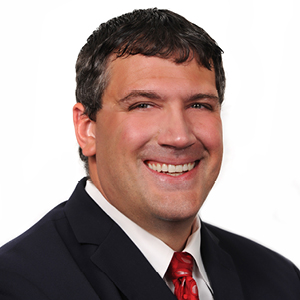Time to Fight the Rising Tide of Occupational Licensing
Sep 25, 2017
Recently, there has been a flood of potentially harmful legislation that risks undercutting Ohio’s prosperity. Bad bills that expand burdensome occupational licensing requirements to an ever-larger number of Ohioans remains a serious impediment to creating an economically prosperous state where people are able to pursue job opportunities and career advancement without needing to seek costly, time-consuming permission from government.
Legislation that requires more and more professions to be licensed has been coming fast and furious including those licensing: residential only building contractors, commercial roofing contractors, home inspectors, elevator and escalators installers.
Each of these pieces of legislation are being promoted by advocates as being necessary for public safety or to protect consumers. Unfortunately, what these bills do is restrict opportunity for Ohioans seeking jobs.
As The Buckeye Institute as found in our Forbidden to Succeed report:
“High fees and training requirements reduce an occupation’s job growth by 20 percent, as prospective workers who cannot afford to enter the occupation remain unemployed or underemployed.”
Of Ohio’s 31 moderate-income occupations requiring licensure, 15 require hundreds or even thousands of hours of training. Remarkably, nearly every Ohio license that requires training can be earned in less time in another state. For example, while there is pending legislation to reduce this absurd number, cosmetologists currently need 1,500 hours of education to get a license. That is 10 times the amount of education needed to become a basic emergency medical technician that literally saves lives! That is also 500 more hours than what is needed in the seat of high fashion in America- New York!
Ohio certainly needs to require appropriate training and licensing for jobs with health and safety concerns, such as physicians and pilots, and no one disputes this. However, such concern fades dramatically when applied, for example, to auctioneers (that have to meet apprenticeship requirements), travel guides (Lake Erie Fishing guides need to pony up $50 to be licensed), and hairdressers, all of which require licenses today in Ohio.
This burden is even more daunting for the employment prospects that are faced by many in Ohio’s minority communities. Nationally, the unemployment rate among African Americans remains much higher than among other demographics. According to the Bureau of Labor Statistics, the most recent unemployment rate was 7.7 percent for African Americans—nearly double the 3.9 percent unemployment rate for whites. Similarly, unemployment confronts a staggering 23.4 percent of young African Americans between 16 and 19, and 11.8 percent of young whites.
Adding more licenses onto Ohioans is not going to reverse these discouraging trends.
Given these fact, it isn’t surprising that there is growing non-partisan acknowledgement that licensing laws have gone too far. From The Buckeye Institute and the Heritage Foundation to the Brookings Institute to both the Obama White House and the Trump Administration, there is a growing consensus that these burdensome licensing requirements are bad for everyone.
So what can be done?
We need to continue raising awareness of the issue to members of the Ohio General Assembly. The Buckeye Institute is working with a number of policymakers in order to educate them on the need for meaningful reforms. This includes policy that will require the state to impose the least restrictive type of occupational licensing regulation to ensure consumer protection, while also establish a sunrise and sunset review processes for existing of licensing boards and new licensing legislation. Over time, the use of these reviews will help clean up antiquated licensing requirements while preventing new ones from cluttering Ohio’s laws.
We also need to continue removing burdensome requirements for specific professions. The Buckeye Institute is already working with individual salon owners and a bipartisan group of legislators, including republicans Representative Kristina Roegner (R-Hudson) and Senator Kris Jordan (R-Ostrander), and democrats Representative Alicia Reece (D-Cincinnati) and Senator Charleta Tavares (D-Columbus) to improve cosmetology policy. The goal is to build upon the successes in the previous General Assembly and to move towards further reducing burdens on cosmetologists.
Finally, we need to look at how we remove employment barriers for spouses of military personnel stationed in Ohio. Buckeye is leading the way by developing good policy that would recognize out-of-state licenses for military spouses.
It is inevitable that in every General Assembly there will be a series of licensing bills that risk ensnaring many Ohioans in a bureaucratic, and often expensive maze, that delays their ability to make a living and move up the ladder of success. However, working to strengthen the growing bipartisan consensus we can eliminate these burdensome regulations and ensure Ohioans can pursue job opportunities and career advancement.
Greg R. Lawson is the research fellow at The Buckeye Institute.

